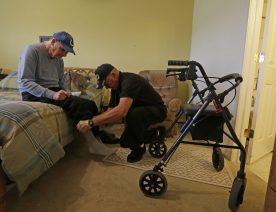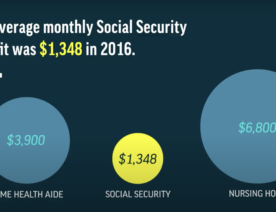
Since 2014, The Associated Press-NORC Center for Public Affairs Research, with funding from The SCAN Foundation, has been tracking the attitudes and perceptions of California residents age 40 and older on key long-term care issues. The results provide new insights for California policymakers at a time when the state is preparing for the long-term care needs of its large, and growing, older population. With the costs of long-term care services for the average American ranging from $91,000 to $182,000, providing and financing long-term care services will remain an important public policy issue for decades to come.
This new report takes a close look at older Californians’ awareness of, and support for, California’s Paid Family Leave Program, an initiative that provides partial payment replacement for workers who take time off to care for a sick family member. While the program is popular among Californians age 40 and older, a significant minority would not feel comfortable using its benefits, citing fear of losing their job and needing their full pay as major reasons why they wouldn’t take advantage of the program.
The poll also continues to track how Californians age 40 and older compare to residents in the rest of the United States in their support of various policies to help Americans prepare for the costs of their own long-term care and the costs of providing care to a family member or friend, their preferences for their own long-term care needs, and how they are preparing for the financial burden of care, with an eye toward the role long-term care insurance could play in that equation.
Three Things You Should Know
From The AP-NORC Center’s 2016 Long-Term Care Poll
Among Californians age 40 and older:
- More than 3 in 4 support programs that offset the cost of providing ongoing living assistance, such as tax breaks for providers and paid family leave.
- Four in 10 say they are confident they will have the resources to pay for any ongoing care they may need, similar to older Americans in the rest of the U.S.
- Three-quarters say they would prefer to receive any necessary living assistance services in the comfort of their own homes.



